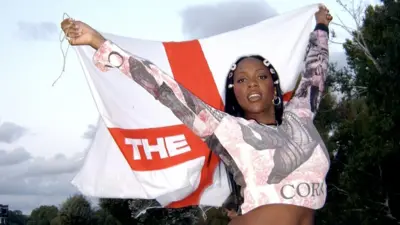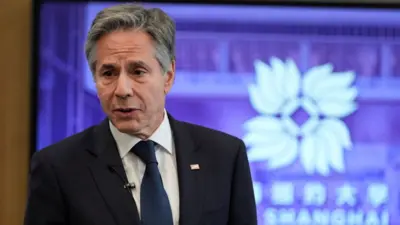We've updated our Privacy and Cookies Policy
We've made some important changes to our Privacy and Cookies Policy and we want you to know what this means for you and your data.
What's going on with Labour's row?
- By Iain Watson
- Political correspondent, BBC News
Image source, PA Media
It wasn't the best start to a crucial conference when Sir Keir Starmer was forced to withdraw his grand plan for changes to leadership elections.
But the tide may have turned a little for the Labour leader, as some watered down - but still significant - party reforms have passed their first hurdle.
Let's start at the beginning, in the days before the party descended onto the crowded streets of Brighton.
Sir Keir had wanted to get the sign off from unions for his proposal to give MPs - and the unions themselves - more say in future leadership contests. But, it would come at the expense of party members.
And, simply put, not enough groundwork was done in advance.
The unions account for half the votes at Labour conference and three of the bigger ones needed to be onside, but they complained about a lack of consultation.
One of them - Unison - had clear policy backing one member, one vote, which could not be overturned at the drop of a hat.
The meeting between Sir Keir and the unions on Wednesday was described by one of them as a "car crash".
And after the meeting, a former shadow cabinet member questioned Sir Keir's competence and political nous.
The original plan to take the proposals to Labour's ruling NEC on Friday had to be ditched.
But those close to the Labour leader saw this a setback, not a reversal.
An informal meeting on Friday night between the Labour leader and three of the more sympathetic unions ended with the electoral college of MPs, unions and members junked - but other significant reforms agreed.
Sir Keir's aides pointed out that he had never said his reform package was on a take-it-or-leave-it basis and was always willing to negotiate.
Significant reforms
So an amended set of proposals were discussed at a meeting of Labour's NEC - its ruling body - on Saturday.
They would still give MPs more power on choosing who gets onto the ballot in the first place, by upping the threshold for nominating leadership candidates from 10% of the parliamentary party to 20%.
And they would stop people outside the party paying for a vote in any leadership contest by scrapping registered supporters.
The plan got the thumbs up from the executive, with 22 votes for and 12 against.
But they still face a vote on the conference floor come Sunday.
The left hated the electoral college - as it would give the rank and file less say. But they will despise what is on offer now too.
Registered supporters, for example, were credited with helping Sir Keir's predecessor Jeremy Corbyn to get elected - bringing in people from the left and the green movement who had no long-term connection or allegiance to Labour.
Deselections
The reform package would also make it more difficult to deselect sitting MPs.
A key demand of the left is for "open selections", where in effect MPs would have to reapply for their own jobs.
This reform would go in the other direction, with MPs automatically reselected unless at least half of local party members want a contest.
And the number of policies that could be debated at the annual conference would be cut from 20 to 12.
Sir Keir's allies see all this as a means of refocusing the party outwards, with fewer future opportunities for factional fighting.
The left will see it as a further attempt to "de-Corbynise" the party.
Some across the political spectrum are scratching their heads over the timing of this internal battle, while the government is on the back foot over fuel and living standards.
But supporters of change take the view "if not now, when?" - closer to an election would be worse.
When the plan goes to the full conference on Sunday, there will be a fight.
Left-wing group Momentum wants the revised package "binned".
But Sir Keir's allies now believe they have moved on to territory they can win.
The question is whether voters give him plaudits for decisiveness, or demerits for division - or possibly just get turned off by the whole row.
Top Stories
Features & Analysis
Most read
Content is not available








